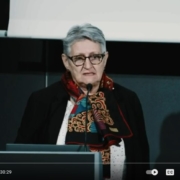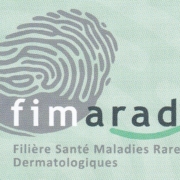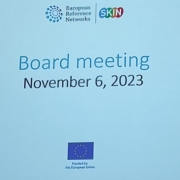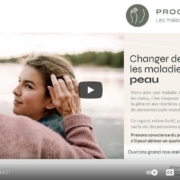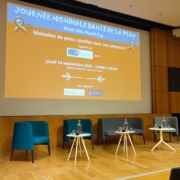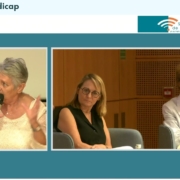« United for Health»
/in Legislation - Society, News /by Marie-ClaudeIt is a Parlementary club established after a survey made by the NGO « Action Santé Mondiale » ( https://www.actionsantemondiale.fr/enquete-parlementaire-inedite-menaces-sanitaires/) This parlementary club wants to be a link between national representatives and civil society actors by proposing :
- A place to meet and dialogue with health and world challenges experts : scientists, leaders of UN Organisations, NGO or Think Tanks agencies, aactivists and other stakeholders.
- A better framework to watch at the heart of the problems, thanks to visiting Health International Organisations and taking part in study travels.
- A plateform offering contents and tools to help deputies’ work.
Canada establishes rare disease Advisory Group
/in In the media, Legislation - Society, News /by Marie-ClaudeThe Government of Canada has announced the establishment of an Implementation Advisory Group (IAG) for drugs for rare diseases.
The creation of the National Strategy for Drugs for Rare Diseases will aim to improve consistent access and affordability of effective drugs for rare diseases.
Over the next three years, the IAG will provide a forum for patients and stakeholders to exchange information, provide patient-centered advice and exchange, and establish best practices for the implementation of the National Strategy.
(orphanews International 2023.11.20)
French Network for Rare Disorders (FIMARAD) – 8th National Day
/in Meetings, Events and Exhibitions, News, Photos, Research - Medicine - Genetics /by Marie-Claude
17th November 2023 :
In the beautiful setting of the « House of Latin America » in Paris, the French Network FIMARAD had organised its 8th National Day.

During their presentation, Patient Representatives shared their concern about the survival of patient organisations. The latter, especially small organisations such as CLI, always need to fight to achieve their aims because they lack both volunteers and funding.
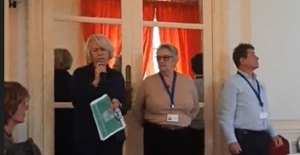
The non-existence of funding from the government and from health authorities when they ask for greater participation in health activities is a crucial topic.
ERN-Skin Board Meeting
/in Meetings, Events and Exhibitions, News, Research, Research - Medicine - Genetics /by Marie-Claude6th Novembre 2023 :
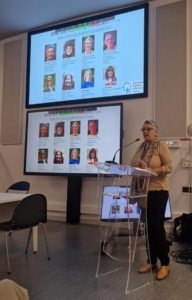
ERN-Skin Annual Board Meeting.
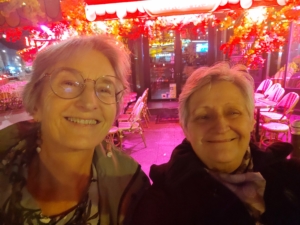
It really was a great pleasure to meet again in person with all members of ERN-Skin.
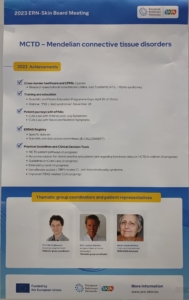
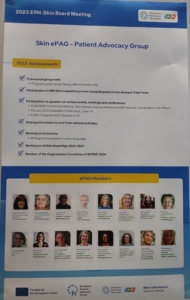
Whether we are Health professionnals, doctors, researchers or patient representatives, a real common will drives us : improving Skin Patients’ quality of life throughout Europe.
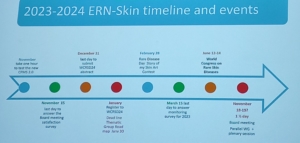
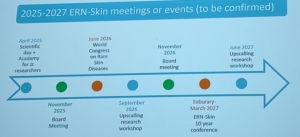
The new roadmap for the coming years (2023-2027) has many signposts along the way, whether for health professionnals or Patients’ representatives
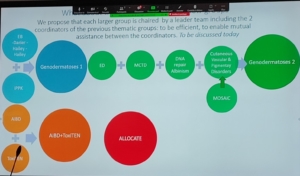
The first results of the Patient Satisfaction Survey are being analysed.
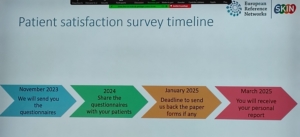
Psychosocial needs of children with rare diseases and their families
/in Legislation - Society, News, Research - Medicine - Genetics /by Marie-ClaudeA new article has been published in the Orphanet Journal of Rare Diseases which explores the day-to-day experiences of children living with rare diseases and their parents, as well as their needs and current pathways to psychosocial supports.
Five main themes : daily life with an RD; experiences with the health care system; psychosocial support; difficulties and barriers; and improvements for patient-oriented support were addressed during semi-structured interviews with young people with RD and parents of children with RD.
Overall, diagnostic delays and a lack of physician education, as well as time, socio-legal, and organisational problems all caused stress and negatively affected mental wellbeing.
Despite recent advances in awareness and care, RD still represent a great challenge for all those affected by them and their families.
(Orphanews International 2023.10.16)
The economics of delayed diagnosis in the United States:
/in In the media, Legislation - Society, News /by Marie-ClaudeThe EveryLife Foundation for Rare Diseases has published a new study on the economic implications of delayed diagnosis of rare diseases.
Timely diagnosis of rare diseases is key for patients to be able to access potentially life-saving treatment and improved quality of life.
Beyond the health benefits, however, delayed diagnoses also come with greater costs for health systems.
(orphanews International 2023.09.29)
World Skin Health Day
/in Legislation - Society, Meetings, Events and Exhibitions, News, Photos /by Marie-Claude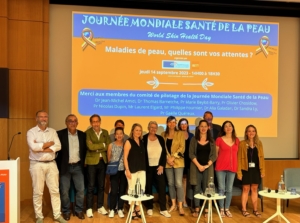
14th September 2023 :
World Skin Health Day, organised by the French Society of Dermatology (SFD).
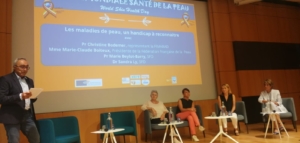
The first part of the day was dedicated to Skin Disability and Marie-Claude Boiteux testified during the round table on this subject.
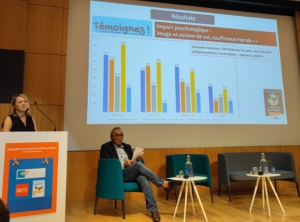
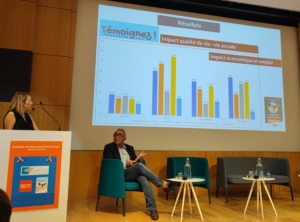
Pr Marie BEYLOT-BARRY presented with the impact of dermatological disorders on quality of life
It also was the occasion of an interview for the SFD.

